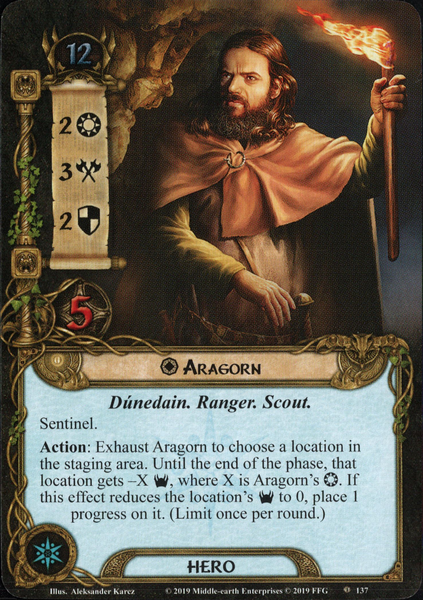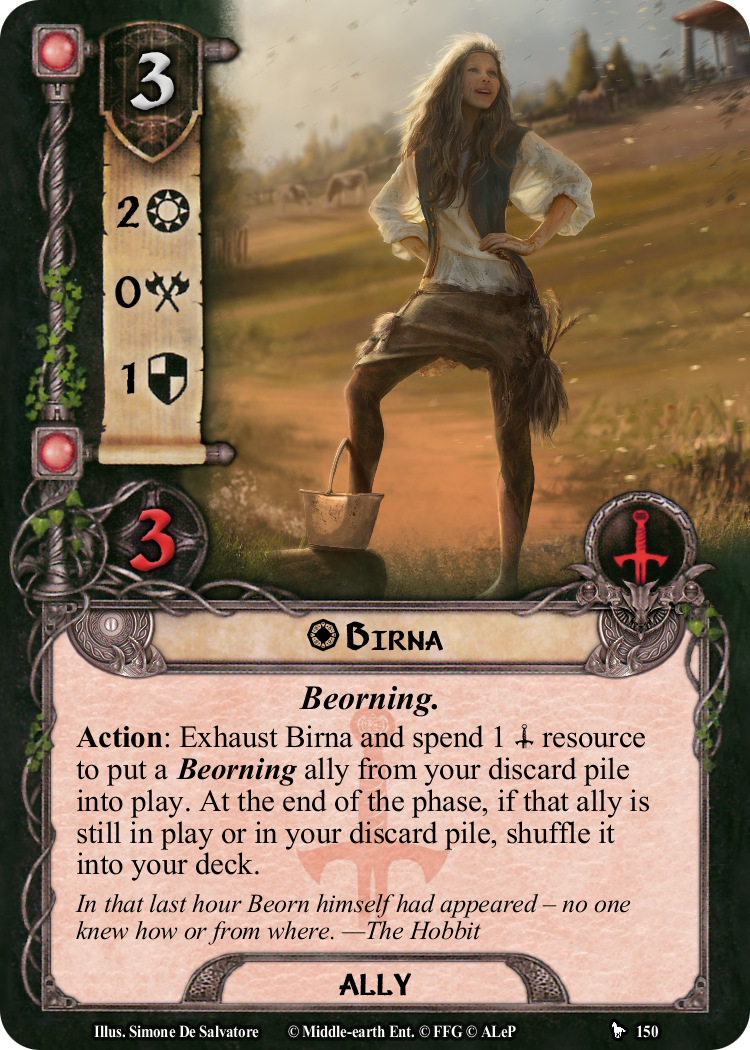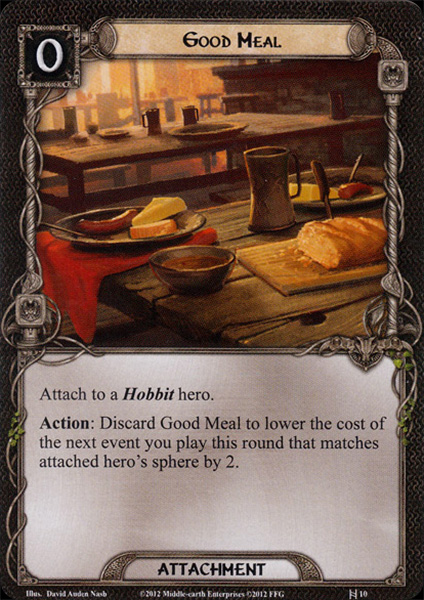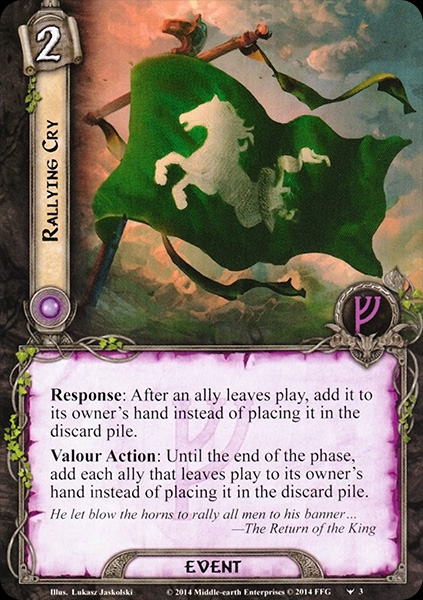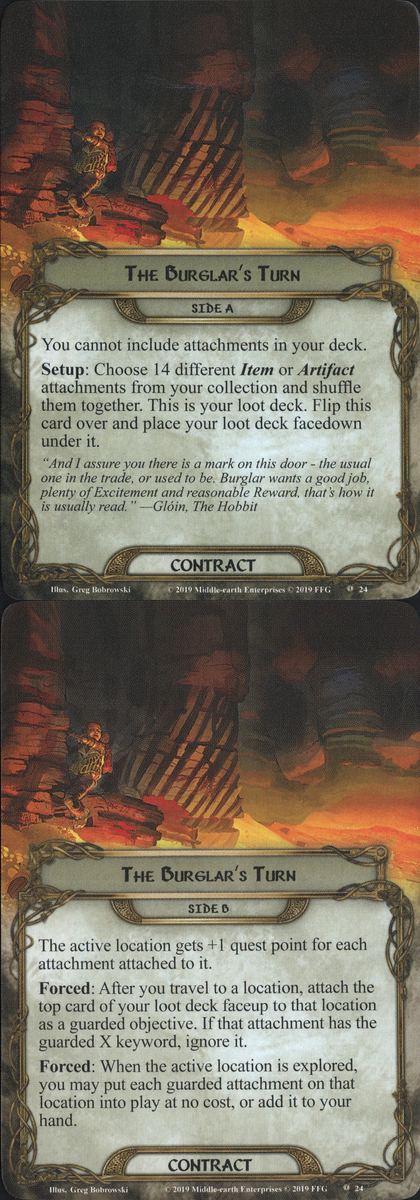A very powerful and underrated version of Aragorn.
Versatility
With a stat-line that can do any job, being in the sphere of Unexpected Courage helps him a lot. Choosing what to do with him in the first few turns is critical for all versions of Aragorn. With his ability you can wait until after the encounter deck reveal to determine what to do. Did you reveal an enemy you need to fight? He's still ready! Did you reveal a location? You can use his ability to add his willpower to questing anyway.
But it gets better: did you keep him in reserve for combat, but find yourself just short of willpower to clear the active location or to put progress on the quest? There are situations where this gamble can cost you the game. Think of locations such as Lightless Grotto, Ancient Guardroom, Ithilien Road or Quests such as Breaking of the Fellowship 1b, or the quests from the Harad cycle. Aragorn can give you that final boost.
Or if maybe you want to build your board state and not advance the quest, but still keep clearing locations. You can underquest and if you get a low threat enemy or treachery, you don't accidentally advance. Aragorn ability to control your questing power is unmatched and you need to play with him to really appreciate.
And there are more creative ways to use his ability. Any location that triggers on "when this location is explored" can be timed by using his ability to place progress. In one instance I used it to explore a location with Elf-stone on it to put Jubayr into play after my current copy in play was just defeated in order to block another enemy.
Questing power
Aragorn is one of very few heroes that can quest twice using Unexpected Courage. He can quest AND use his ability to use his willpower again. This let's him get double effectiveness from willpower boosts. Add the fact that he can put progress on the location and he's also questing for future turns. In 3 or 4 player games, being able to explore locations in the staging area is very powerful and having a hero capable of such feats from turn 1 is great. Add Rhovanion Outrider or Northern Tracker and you're in great shape.
Tools
Being Aragorn, there are a lot of useful attachments specifically for him. Ring of Barahir is in sphere and a great addition if you are also playing with lore. You'll want more artifacts on him then and Mithril Shirt and Stone of Elostirion are both amazing on him and because they are guarded by locations, they play into his strengths. Even better, they discard non-locations from the encounter deck so the rest of the deck is more likely to hand you more locations. This also lets you lean into The One Ring and Well Preserved. Sword that was Broken is the best Aragorn attachment and can be played with Reforged** provided you have means to discard it from your hand with cards like Arwen Undómiel or Éowyn. Thorongil gives you access to tactics Aragorn abilities to help your spirit deck deal with enemies but lore Aragorn and his threat reduction can come in clutch as well.
Downsides
Aragorn flexibility at the start is great, but you'll also need it due to his high starting threat.
His other weakness is that his ability requires targetable locations in the staging area. In 3 or 4 player games this shouldn't be a problem but in solo play you'll want to keep a location in the staging area or use cards like A Watchful Peace, Shadow of the Past or The Hidden Way to be sure. This, along with the other tools we mentioned, means he'll want to take a sizable chunk of your deckspace for support.
** Apparently Reforged got errata in the repackaging. But I 100% believe Sword that was Broken should be an 'item' and usable with this card for obvious reasons.
